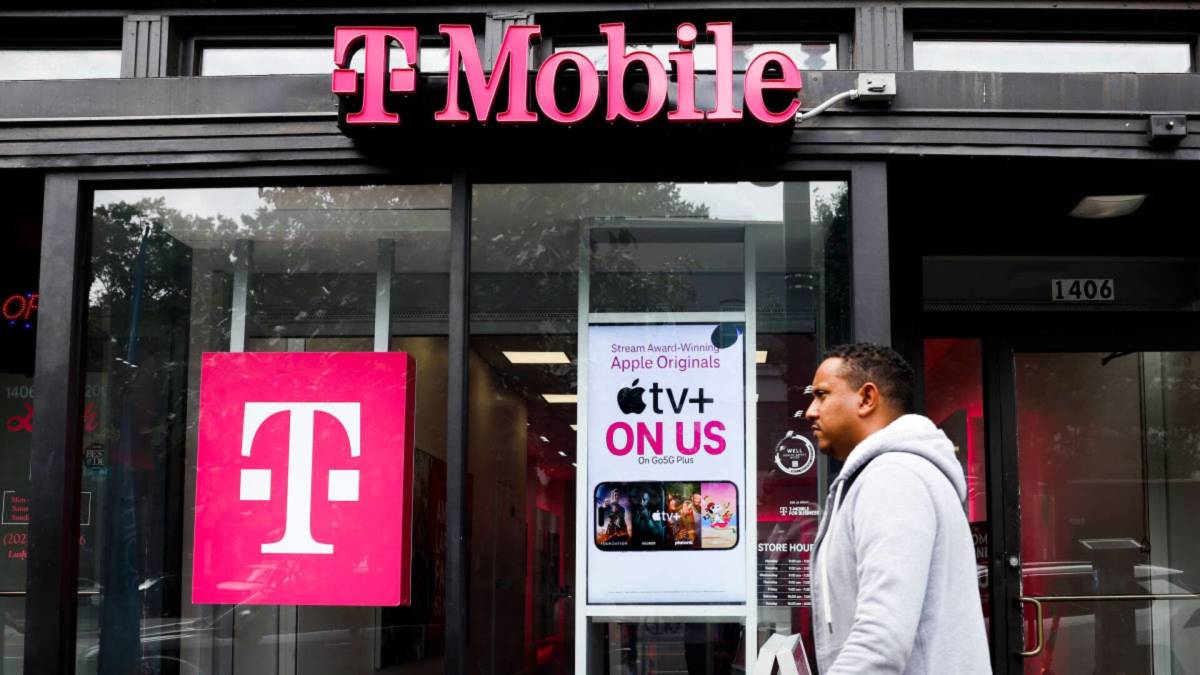Last week, T-Mobile (TMUS) raised eyebrows when it made a bold move to attract new internet customers, keeping them away from rivals amid heightened competition.
The phone carrier added free customer perks to its new Amplified and All-In internet plans.
Related: Verizon scrambles to keep angry customers after cutting discounts
Amplified now grants customers access to 24/7 tech support, which offers live video support for help with household smart devices such as thermostats and doorbells.
In addition, T-Mobile also added advanced cybersecurity to its Small Business Internet Amplified and All-In plans, which will help “block harmful sites, detect suspicious activity and keep connected devices safe from online threats,” according to a press release. Customers can manage the feature through the T-Life app.
T-Mobile makes a bold move that previously angered customers
Both Amplified and All-In launched in December last year with prices of $60 and $70, respectively, with autopay.
However, T-Mobile also recently made a significant change to the advertised rates of both plans and its Rely internet plan, which is $50 a month with autopay.
The prices of all three plans no longer include taxes and fees, according to a recent report from PC Mag. This practice, first introduced when T-Mobile launched its Experience More and Experience Beyond phone plans in April, frustrated customers.
Removing taxes and fees from prices opens the door for T-Mobile to continue hiking monthly bills by increasing fees or cutting monthly discounts.
Related: T-Mobile launches a cheap new service amid customer struggles
T-Mobile also offers a five-year price lock guarantee on its home internet plans; however, according to its website, “exclusions like taxes & fees apply.”
“We updated our broadband plans to no longer include taxes and fees in the pricing to align with what we’ve done across our broader portfolios and make it easier to compare value across providers,” said a T-Mobile spokesperson in a statement to PC Mag. “There’s no change for existing customers who have taxes and fees included on their plans.”
The move from T-Mobile comes after it launched on June 24 three new low-priced prepaid phone plans that do not include taxes and fees in their pricing.
The phone carrier also reportedly plans to omit taxes and fees from watch and tablet plans very soon.
A source close to T-Mobile told TheStreet in June that the phone carrier has been excluding taxes and fees from some of its plan prices because it received feedback that this information was confusing for customers, making it more challenging for them to compare plans across different providers.
T-Mobile is profiting from a major shift in customer behavior
T-Mobile’s bold change to the prices of its internet plans comes during a time when many consumers are flocking to its internet services to escape high prices from cable companies.
T-Mobile offers fixed wireless access internet service, which provides internet access to remote or underserved areas at a price that’s usually cheaper than traditional internet services.
More Telecom News:
- Verizon’s push to make switching harder for customers hits a snag
- T-Mobile announces generous offer for conflicted customers
- Amazon pulls the plug on a free service for customers
In its second-quarter earnings report for 2025, T-Mobile revealed that it added roughly 454,000 high-speed internet customers during the quarter, which is 12% higher than the number it welcomed during the same quarter last year. T-Mobile ended the quarter with 7.3 million high-speed internet customers.
As fixed wireless access internet grows in popularity in the telecom industry, cable giants Spectrum and Comcast collectively lost 343,000 internet customers during the second quarter of this year, while T-Mobile, AT&T, and Verizon collectively welcomed about 932,000 new 5G home internet customers during the quarter.
A recent survey from Cord Cutters News revealed that only 40.2% of consumers now rely on cable TV companies for their internet service, a significant decrease from 45% in late 2024. Also, roughly 11% rely on 5G home internet, up from 8.4% just a year ago.
Related: Comcast takes drastic action as customers rapidly cut service



















